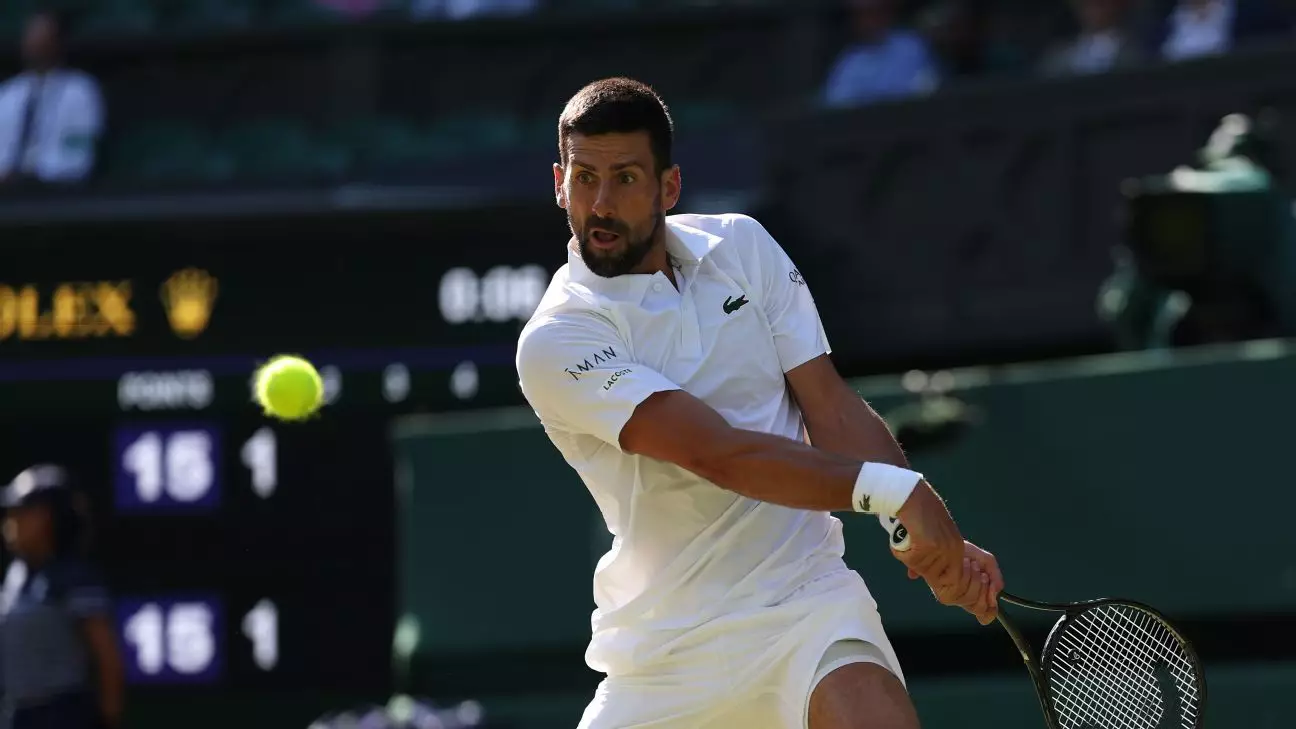Novak Djokovic’s recent exit from Wimbledon confronts us with a stark reality behind the aura of infallibility often surrounding legendary athletes. For years, Djokovic has been lauded as a symbol of resilience and relentless pursuit of greatness, yet his emotional departure after a straight-sets loss exposes the harsh truth: even the most resilient champions are mortal. His speech, oscillating between hope and uncertainty, underscores a vulnerable human side that is often hidden beneath the veneer of athletic dominance. This moment forces us to reconsider the myth that elite athletes, especially those in their late 30s, can maintain their peak indefinitely. The relentless march of time, compounded by physical wear and mental fatigue, inevitably chips away at what once seemed indestructible.
Resilience or Denial? The Illusion of Continuity
Djokovic’s insistence that he does not view this loss as the final chapter at Wimbledon hints at a psychological maneuver—an attempt to cling to a false narrative of perpetual relevance. Such vocal optimism, however, borders on denial. It reflects a broader tendency among aging athletes to romanticize their longevity, often ignoring the mounting evidence that age is an unforgiving foe. His declaration that he aims to return at least once more on Centre Court may serve as a rallying call for supporters, but it also masks the mounting reality: the window for sustained top-tier tennis is narrowing. The nostalgia surrounding his illustrious career should not overshadow the evident physical signals—“being compromised quite a bit”—which reveal the toll of an intensive career that defies natural limits. The driven pursuit of greatness, while admirable, can sometimes convert into stubborn denial about the natural cycle of life and sport.
The Cost of Greatness: Physique, Age, and the Future
The recent performances of Djokovic highlight a hard truth: greatness in sport is increasingly fragile as athletes age. Despite an impressive record, including a record-tying 24 Grand Slam titles, signs of decline are undeniable. Pressing too hard against the inevitability of aging risks burnout and injury, yet the societal obsession with chasing legacy fuels relentless attempts to defy biological constraints. Djokovic’s candid acknowledgment of his physical state reveals the internal conflict faced by many top athletes—how much is too much? How long can they sustain the high standards they set for themselves? His intention to participate in the US Open underscores the trap of clinging to diminishing returns, where the desire for victory conflicts with the body’s natural limitations. His story exemplifies a broader societal dilemma: should we admire relentless ambition, or recognize its potentially destructive endgame?
The Self-Delusion of Lasting Greatness
It is tempting to view Djokovic’s future prospects with optimism, but such hope may be naive. The tennis world has shifted dramatically in recent years, with emerging stars like Alcaraz and Sinner, who symbolize a new generation hungry to rewrite the narrative of dominance. Djokovic’s comparisons of his current form to past performance signal a mental struggle—balancing ego with reality. His muted acknowledgment of recent shortcomings contradicts his optimistic tone about future participation. The myth that sports legends are destined for eternal reign perpetuates a dangerous self-delusion—one that can obscure the clarity needed to gracefully accept the twilight of a career. Continued participation amidst declining physicality and mental fatigue risks tarnishing Djokovic’s legacy, transforming what could be a graceful farewell into a series of diminishing returns.
Reassessing the Meaning of Greatness in a Changing Landscape
This moment in Djokovic’s career is emblematic of a broader cultural shift: the reevaluation of greatness. No longer are sustained dominance and seemingly indestructible legacies accepted at face value. Instead, society is beginning to understand that true greatness lies not just in record-breaking but in humility, acceptance, and the willingness to step aside when the moment is right. Djokovic’s declaration that he “continues to play his best tennis” despite recent setbacks reveals a desperate rally against aging, reminiscent of a hero fighting the inevitable. But perhaps what we should focus on is redefining what it means to be a champion—not solely through titles, but through how gracefully one can accept the natural decline and transition to other roles within the sport or broader life. In this sense, Djokovic’s future might hinge less on chasing records and more on shaping his legacy through humility and self-awareness.

